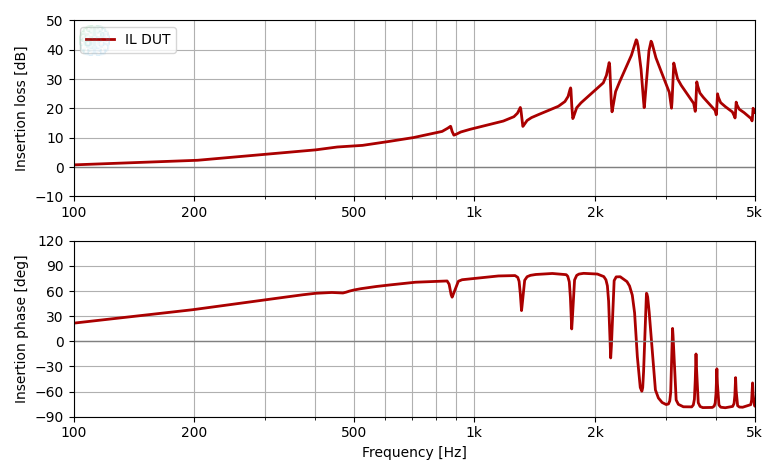Insertion loss
Insertion loss is the reduction in sound pressure level, when a device-under-test (DUT) is added to a system.
Measure
ACME can determine the insertion loss by comparing two measurements:
- System without DUT (reference)
- System with DUT
First the reference measurement must be performed. Once this is finished, it will remain valid for 12 hours and will automatically be linked to all future measurements. Next, perform the measurement with DUT.
Reference measurement
- Select
Measurement type->Insertion loss - Tick the box
Reference measurement
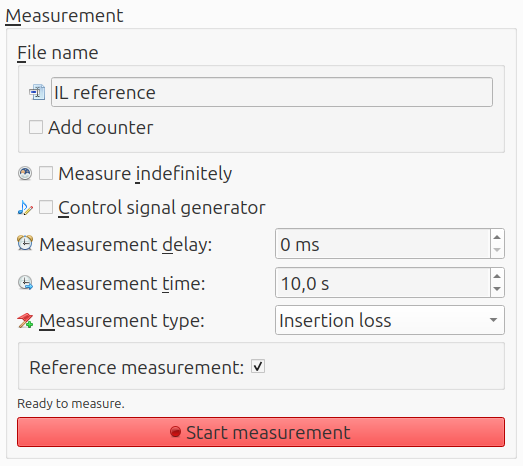
Measurement with DUT
The last reference measurement is shown in the box Last reference.
- Select
Measurement type->Insertion loss - Untick the box
Reference measurement
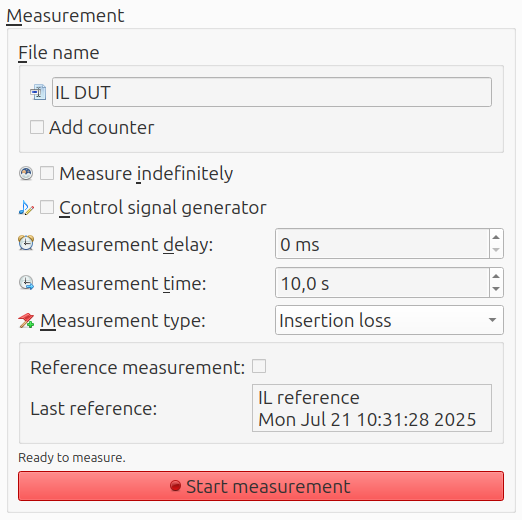
Analyze
Insertion loss builds on Power spectra. The settings of at
Power spectra are applied to both
measurements individually, after which the results are subtracted from
eachother. The difference is plotted as the insertion loss. Any smoothing is
applied before the results are subtracted.
From Power spectra, only the output types Auto power and Bode diagram
can be used with insertion loss.
The following settings are available:
- Reference measurement: if multiple reference measurements are available, select which is to be used
- Switch sign: multiply by -1, in case the reference and DUT measurements are swapped
- Plot with phase: plot the phase as well
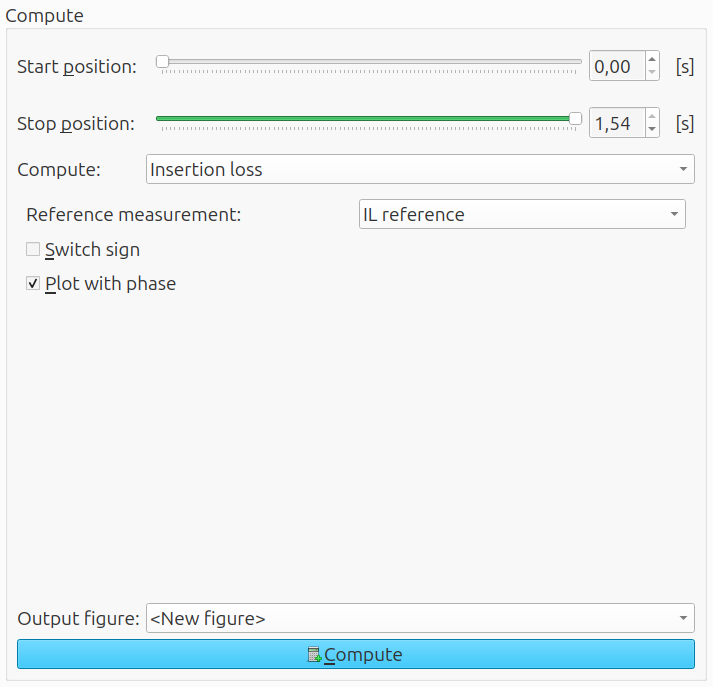
Example
An example is shown below. The system is a resonant tube with a loudspeaker on one end and a microphone on the other end. The DUT is a constriction, which can be placed in front of the microphone.
First, the Power spectra settings.
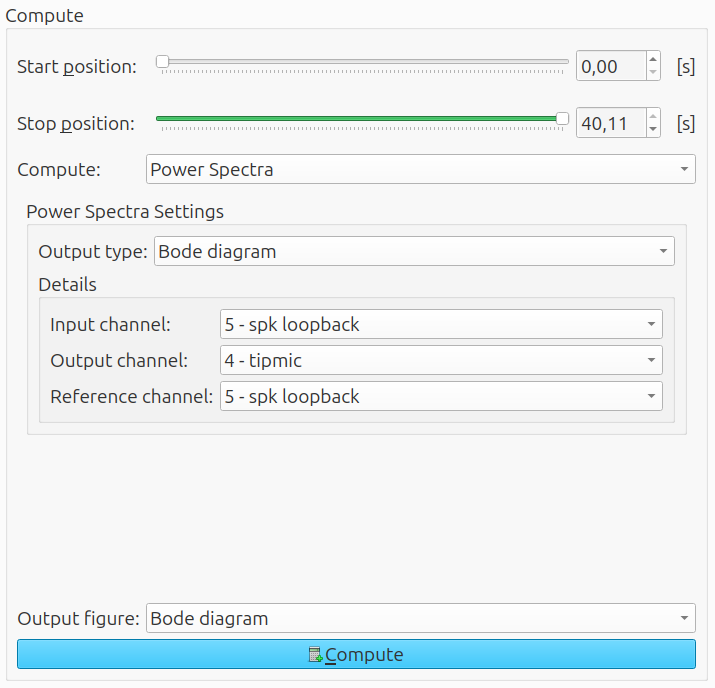
The resulting bode diagrams are as follows...
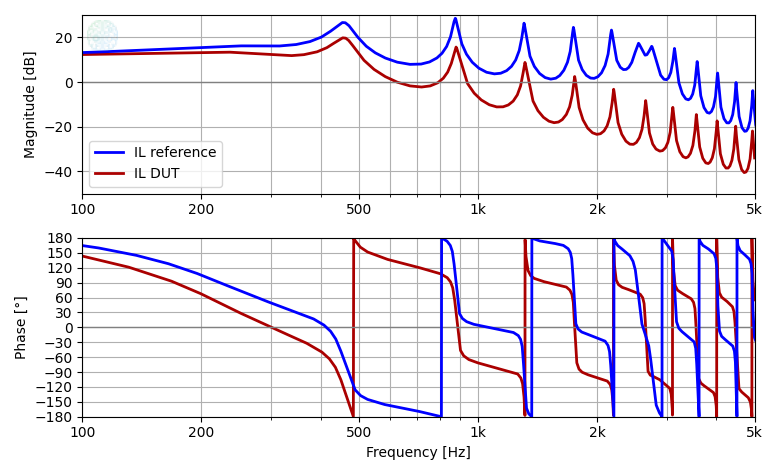
...and the insertion loss is the difference between them. Note that the insertion loss is positive, even though the DUT decreased the sound pressure level at the microphone.
